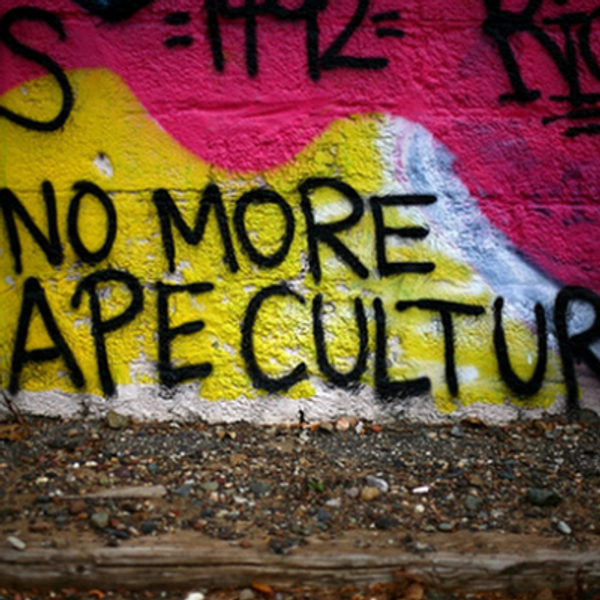Please practice self-care when reading.
Shh... How frightening the word now sounds to victims of sexual assault. Used by perpetrators to coax their victims, can illicit recurring flashbacks whenever heard. A scolding teacher, a parent trying to calm their child, to victims, it is now a way to silence their voice, to keep quiet and hoping it comes to an end soon. It is nearly as worse as having the perpetrator's hand down their throat.
There are a plethora of reasons why victims choose to stay quiet about their experience. Going through a shock can set anyone over the edge. No choice, during that time, seems like the right choice. But even so, there is a barrier between victims and them receiving help, a barrier created by society. There is a negative stimulus, and less so on the perpetrators and more so on the victims, how we think of them and how we interpret their experiences.
Below is a numerical list discussing the factors of rape culture. Suggestions are included to better promote a better way of thinking of the victims' experiences and how to offer support. Please keep in mind the topics discussed under each category can always be discussed further in depth; I am merely skimming the surface of a myriad of misconceptions and perspectives of rape culture. Much of the information below is obtained from personal experiences, recounts from victims, seminars, statistics, etc.
1. CONSENT
Look it up. Live it. Breathe it. Tattoo it on your forehead. "The green light." A concept many still do not fully understand: consent. Consent is an affirmative yes, a "let's go," "I'm all in." Consent is not a no, maybe, "well." No means no and yes means double check. Triple check. Nothing wrong with checking four times. No does not mean to try and convince the person. The way a person looks, dresses, behaves, etc. does not grant consent. There is no "subliminal" consent. A yes means both people are granting permission for the other person to begin their time together. A yes means both partners involved understand the consequences of sex. An affirmative yes is key. There is no hesitation involved and both partners are on the same page. Your body is all yours and consent is allowing another person(s) to make advances that you want. If you are attending college, check to see if your institution has an affirmative consent standard in cases of sexual assault.*
2. MOST VICTIMS DO NOT KNOW THEIR RAPISTS
Wrong. In some cases, yes, victims are assaulted by someone they do not know but more often than not, the victim previously had a "normal" relationship with their attacker. Stranger rape is far less common. Rapists can be a boyfriend, a wife, a neighbor, a best friend. There are hiding among our friend groups and can know us better than ourselves. We tell them we love them; we've gone on dates with them. Rapists do not have a set profile; they can be ANYONE. Because victims are sometimes faced against people they formally loved and supported, it can create many misconceptions between the victim, their rapist and those aware of the situation.
3. RAPE IS COMMON
In a nutshell, yes. Nearly one and five women in America has been a victim of rape or attempted rape, and that is just those who report. Victims are unlikely to report circumstances of sexual assault, making the numbers difficult to solidify. There are statistics that show the percentage of rape has fallen since the 1970's, but the evidence is circumstantial and has not been solidified.
4. RAPE VICTIMS CAN ONLY BE WOMEN
A big hell no. Any person regardless of sex, race, ethnic background, religion, culture, gender identity, etc. can be a victim of rape. Any person regardless of sex, race, ethnic background, religion, culture, gender identity, etc. can also be an attacker. Statistically, women are more likely to report. Based on current evidence, women are also more often victims of rape or attempted rape but this may be due to the fact men are less likely to report sexual assault. There is a negative stimulus on male victims. According to society, all men should happily welcome all sexual advancements and erect means yes. Again, a big hell no. This is another detrimental way of thinking that contributes to rape culture.
5. IF SOMEONE HAS BEEN RAPED, YOU CAN TELL
Nope, not always. The likelihood of you interacting with rape victims daily, is a fairly high. There is no set profile for those who suffer from rape cases. However, there are common symptoms victims face (again, not ALL victims suffer from these same symptoms). Itchiness, burning, soreness, excessive "bathroom time," hallucinations, night terrors, the list continues. Each victim may go through different psychological symptoms. Not all suffer from physical symptoms. Most continue to live their lives with damage to their mentality: how they think of themselves, relationships, sex and those around them. However, victims may show no apparent signs of their assault, making it more difficult to offer support and accurately estimate rape cases.
6. RAPISTS ALWAYS GO TO JAIL IF THEY HAVE BEEN ACCUSED
Unfortunately not. For example, just check the amount of (reported) rape cases on college campuses and then check their "consequences" aka a slap on the wrist of suspension, removal from sports team, banned for the rest of the school year, etc. This goes for nearly all college campuses, even prestigious, Ivy-League schools.* But do not think, rape starts only at the college level. Rape can happen at any point during a lifetime. It is difficult to send rapists to jail because of how embedded rape culture is in society. Those who do see the inside of a jail cell have low bail rates and serve short sentences. If you want another example, just take a look at the Stanford swimmer Brock Turner. His case was also a dose of victim-blaming and white privilege.
7. DRESS CODES
It would be impossible to pen an article on rape culture without including a section for dress codes. Strict dress codes in public schools alienate females in particular and promote the "she shouldn't have been dressed like that" way of thinking instead of teaching males the correct way to behave. Schools, however, are correct to refine dress codes to fit the learning environment but currently, they are doing nothing but contributing to rape culture. Instead of dress for success, it is now "cover yourself or you asked for it." To receive further knowledge of dress codes and their contribution to rape culture, just search "dress codes." You will find a substantial amount of articles, newscasts, novels, etc.
8. EXCUSES AND DENIAL
Most victims who have gone through therapy have heard this multiple times. Rape will always be a touchy subject, even if it has been years since the initial exposure. But denying the experience ever happened is common. Thinking "well he loved me," "he was my boyfriend and we were in relationship; it's to be expected," "we had consensual sex before," "I've done people wrong prior, it only makes sense that I went through this," are just a few thoughts that may run through victims' heads. It can sometimes be used as a coping mechanism but is a terrible way of thinking of rape victims and their experiences, another contribution to rape culture. Never make excuses for why victims went through their experiences and never allow victims to justify why they had to endure such traumatic experience.
9. NO JUSTIFICATION NECESSARY
Hell yes, ties back to number eight. It is immoral to ask a victim to justify their experience. No explanation, no recount of the events that evening -- nothing -- should be used to justify whether a victim really suffered from rape or attempted rape. If a victim did not give consent and believes they have been assaulted, that is justification enough. This can bear complications in legal environments and medical institutions (rape kits), creating misconceptions of "proving" rape. Victims have to live with the proof for the rest of their lives and having to present this "proof" to the court system, can be downright unethical (but there are varying perspectives on this situation). Never a black and white picture, enough grey area to create different outcomes depending on all factors involved.
10. I BELIEVE YOU
The most powerful words you can say to a rape victim. Words go a long way, especially those three. Sometimes all a person needs is acknowledgement and awareness of their situation. By saying you believe they went through the shock of their assault, is enough for them to take a step towards coping. Rape is a crime, but talking about it isn't. I believe you.
Keep in mind this is a condensed list. Other concepts and details can and should have been included but the list is extensive.
- An Open Letter to Victims & Survivors -
Please know that you did nothing wrong and you are not to blame. You may feel ashamed and no longer yourself. Perhaps you have outbursts or seem withdrawn and people cast you off as "moody." You may feel scared around people who get near you. You may feel your body has no value. You probably feel completely alone. But it was never your fault, no matter the circumstances. Your body is a temple and should be treated as such. You aren't alone and you should not feel ashamed or worthless. The feelings and how they shape you will seem to last forever. It may take days, weeks, months or years and just when you feel better again, you slip. There are not words to define how terrible and immoral your experience was but one day, you won't think of it every day. And one day, the night terrors will not reappear night after night. And one day, you will wake up and truly be content with the life you did not take. No one is entitled to you and the moment you learn that, it will be life-changing. No matter how nerve wracking it may be to reach out, please do. You are worth it. Continue to strive and be successful. Help others like you. You are so worthwhile and deserve all the support. For help: please look up hotline numbers by the state you reside in or visit the Justice Bureau website for more links to a refined website to fit your need (RAINN, Pandora's Project, etc.).
As always.
* Check out EROC for more statistics on rape on college campuses and the protocol involved.
* Check out The Hunting Ground film for more personal accounts, statistics and rape culture on college campuses as far as Berkeley in California to Chapel Hill in North Carolina. However, practice self-care when viewing this film.





















